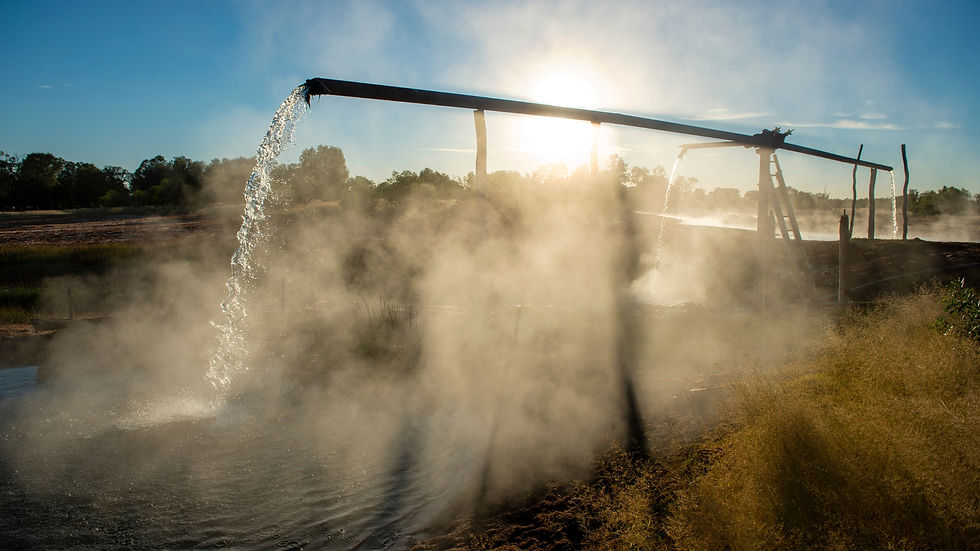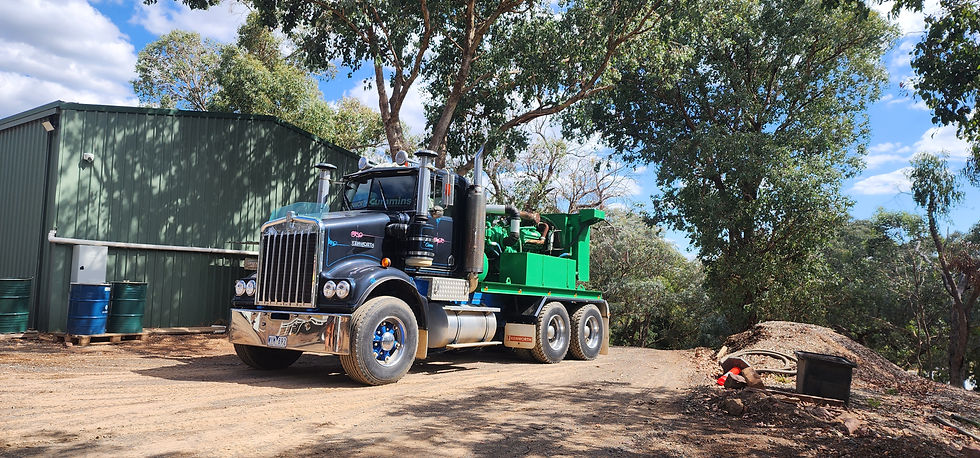Water Bore Licence in Victoria: Who Needs It and How to Apply
- Supreme Drilling
- Aug 18, 2025
- 4 min read
Updated: Sep 4, 2025

Why Bore Licensing Matters in Victoria
Installing a water bore can be one of the smartest investments for landowners in Victoria. It provides a reliable, private water source for your home, garden, livestock, or business. But groundwater is also a shared resource - and the rules around bore licensing are designed to protect it.
If you’re considering drilling a bore, you may have already discovered conflicting information online: some say you don’t need a licence, others insist you do. The truth depends on how you plan to use the water. Get this step wrong, and you could face delays, fines, or even a requirement to shut down your bore.
This guide explains exactly when a licence is required, what the Southern Rural Water (SRW) process looks like, and how to get your application right the first time.
When a Licence Is Required in Victoria
The first step is to understand the difference between stock and domestic bores versus irrigation or commercial bores.
Stock and Domestic Bores
These bores are for:
Household use (taps, showers, toilets).
Garden watering.
Providing water for livestock.
In most cases, no water licence is required for stock and domestic bores in Victoria. However:
The bore must still be constructed by a licensed driller.
You must comply with the stock and domestic bore rules, including depth and siting requirements.
Water taken must not be sold or used for commercial purposes.
Irrigation, Commercial, and Industrial Bores
Any bore that supports a business, crops, or large-scale water use falls into this category. Examples include:
Watering orchards or vineyards.
Supplying a dairy farm or feedlot.
Running a commercial nursery or turf farm.
Industrial cooling or manufacturing processes.
For these, you must obtain a bore construction licence in Victoria through Southern Rural Water.
Example scenario:
A family in Bendigo installs a bore to water their veggie patch and give water to their sheep. No licence required.
A vineyard owner in the Yarra Valley wants a bore to irrigate 20 acres of vines. A licence is mandatory.
Who Oversees Bore Licensing?
In Victoria, groundwater licences and bore construction approvals are managed by Southern Rural Water (SRW). SRW’s role is to:
Ensure groundwater is used sustainably.
Prevent new bores from impacting existing users.
Protect sensitive aquifers and ecosystems.
SRW assesses each application on its own merits, which is why accurate site information is critical.
The Southern Rural Water Application Process
The application process involves several stages:
Application Submission
Complete the SRW application form.
Provide property details, bore location, and intended use.
Pay the application fee.
Assessment
SRW checks groundwater availability in your area.
They assess environmental risks and whether your bore could affect nearby users.
Additional technical data may be requested.
Decision
If approved, you’ll receive your bore construction licence with specific conditions.
These may include limits on bore depth, pumping rate, or water allocation.
Construction
The bore must be drilled by a licensed contractor.
A bore completion report must be submitted to SRW.
How Long Does It Take?
On average, the process takes 6–12 weeks. However, delays are common if applications are incomplete or during busy periods such as summer.
Information You’ll Need for the Application
To avoid hold-ups, prepare this information in advance:
Property title details and address.
Bore location (GPS coordinates or map).
Intended use (domestic, stock, irrigation, commercial).
Construction details, such as depth and diameter (provided by your driller).
Any hydrogeological reports if requested.
Common Reasons for Delays or Rejections
Submitting incomplete forms.
Not clearly explaining intended use.
Applying for a bore in a high-demand or restricted groundwater zone.
Failing to use a licensed driller.
Tip: SRW will often come back with questions if something isn’t clear. Working with an experienced driller ensures your application is accurate from day one.
How Supreme Drilling Helps
At Supreme Drilling, we know the licensing process inside out. Here’s how we make it easier:
Pre-application advice: We tell you whether you actually need a licence, saving unnecessary paperwork.
Technical site data: We supply the construction details SRW requires.
Licensed drilling: Our work complies fully with Victorian regulations.
Application support: We can guide you step by step through the SRW process.
This means you avoid the guesswork, the delays, and the costly mistakes.
What Happens If You Skip the Licence?
Drilling or using a bore without the proper licence can result in:
Fines from Southern Rural Water.
Orders to stop using the bore.
Extra costs to retrofit or decommission non-compliant bores.
The message is simple: check before you drill.
If you’re planning a bore in Victoria, the smartest move is to speak with a licensed driller first. At Supreme Drilling, we can help you determine whether you need a licence, prepare the right information, and build a compliant bore from day one.
Frequently Asked Questions
Do I need a licence for a domestic bore?
Not usually. Stock and domestic bores generally don’t require a licence, but they must still be built by a licensed driller.
How long does approval take?
Typically 6–12 weeks, depending on the complexity of your application and groundwater availability.
What are the most common reasons for delays?
Missing paperwork, unclear purpose of use, or lack of site data.
Can I drill a bore myself?
No. All bores in Victoria must be drilled by a licensed contractor.
Do rules vary by region?
Yes. Southern Rural Water covers most of regional Victoria, but always confirm whether your property falls under their jurisdiction or another authority.


Comments